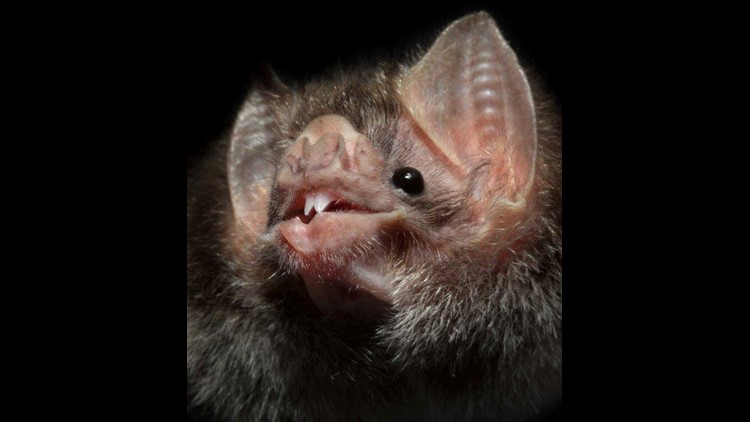CONNECTICUT, USA — The Connecticut Department of Energy and Environment Protection will celebrate Bat Week as part of an international conservation awareness effort, beginning on October 24 and ending, appropriately enough, on October 31 -- Halloween.
Each year, Bat Week is celebrated to help raise awareness about the importance of bats.
Across Connecticut, three bat species will be moving south for the winter while six cave bat species will be moving shorter distances to spend the winter hibernating underground.
Populations of cave bats across the state and North America have been impacted by a disease known as white-nose syndrome, a cold-loving fungus native to Europe that thrives in caves ad mines and grows on the muzzle and wings of bats.
Since 2006, the fungus has caused the bat population to suffer astonishing losses, fatally disrupting the hibernation of bats.
White-nose syndrome has killed over 90% of northern long-eared, little brown, and tri-colored bats in North America in less than 10 years.
Bats serve both an environmental and economic value. Bats are considered the greatest predator of night-flying insects. A single colony of big brown bats can eat roughly 1.3 million insects every year.
The importance of bats in the environment and the rapid decline in bat populations have prompted state and federal governments to take protective actions.
Below is additional information about bats provided by CT DEEP.
Some fun facts about bats:
Bats are the only mammal capable of true flight; they are not flying mice.
Bats are adept fliers who do not try to get caught in people’s hair. Bats that fly near people are after insects like mosquitos or moths.
Bats have good eyesight but rely on echolocation to navigate at night; they are not blind.
Bats’ healthy wings are essential for flight, so bats take care in grooming themselves; they are not filthy or covered in parasites.
There are more than 1,400 species of bats in the world and only three are known as vampire bats. These three species are only found in Latin America and act as parasites of birds and cattle.
What you can do to help bats throughout the year:
Report bats seen outside during the winter to deep.batprogram@ct.gov or call the Wildlife Division at 860-424-3011. Be sure to include the date, location, and any digital photos of the bat.
Reduce pesticide use—let bats and birds take care of the insects.
Protect roosting and hibernation sites.
Spread the word about Bat Week!
Jareliz Diaz is a digital content producer at FOX61 News. She can be reached at jdiaz@fox61.com
---
Have a story idea or something on your mind you want to share? We want to hear from you! Email us at newstips@fox61.com
----
HERE ARE MORE WAYS TO GET FOX61 NEWS
Download the FOX61 News APP
iTunes: Click here to download
Google Play: Click here to download
Stream Live on ROKU: Add the channel from the ROKU store or by searching FOX61.
Steam Live on FIRE TV: Search ‘FOX61’ and click ‘Get’ to download.



